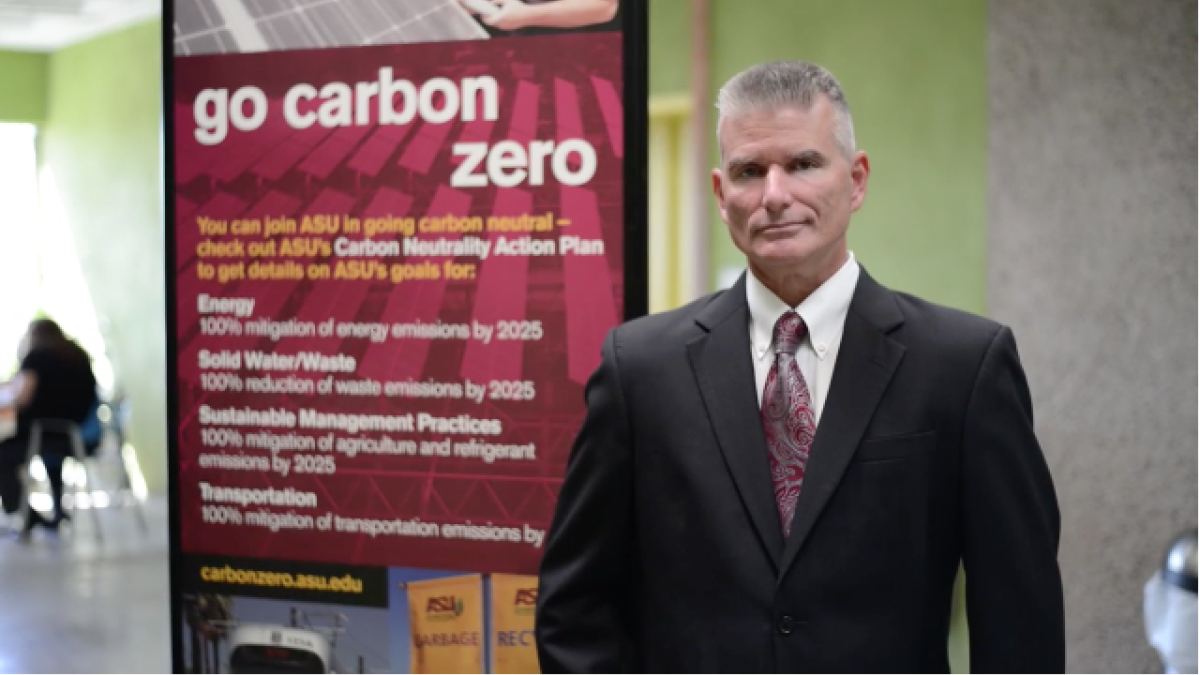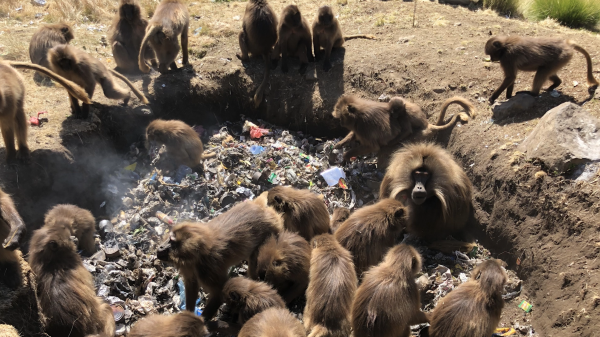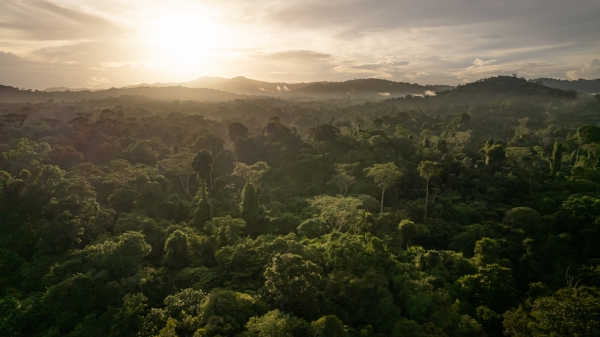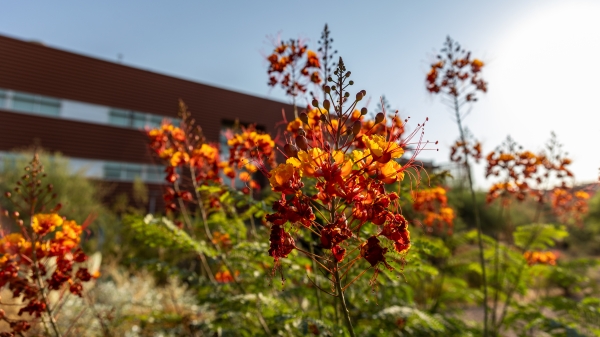Army vet honored by White House as 'Champion of Change'
PhD student to be recognized at White House ceremony Nov. 5

When he received a phone call from an unknown number, Lt. Col. Joe Knott didn’t think to answer it while driving down the highway. But when he later listened to his voicemail, he couldn’t believe who the call was from.
The White House.
“I checked the voicemail and really thought it was a joke the first second when it’s the White House saying ‘you’ve been selected for the White House Champions of Change,’” Knott says.
Knott, a 33-year veteran of the Army and Army National Guard, joins the 2013 Champions of Change for his commitment to land conservation and climate change mitigation. The Obama Administration will award Knott at the White House during a ceremony on Tuesday, Nov. 5.
With a background in environmental management and resource policy, Knott’s many military assignments include serving at the Pentagon as program manager for the Army’s Compatible Use Buffer Program, the Army’s premier land conservation program that under his leadership protected over 70,000 acres of land across the United States for open space and habitat preservation.
Knott’s expertise in land use and conservation carried into his last military assignment as the Sustainability and Energy program manager for the National Guard Bureau. In that role, he planned and implemented sustainability policy, education and renewable energy initiatives for all 54 states and territories.
Throughout his military career, Lt. Col. Knott earned numerous awards, including the Bronze Star for exceptional service during combat operations in Iraq, the Legion of Merit, the Army Meritorious Service Medal with 3 Oak Leaf Clusters, the Army Commendation Medal with 3 Oak Leaf Clusters and the Secretary of the Army’s PACE award for exceptional Service to the Department of the Army.
Knott retired from the military in May 2012 and looks back on his career fondly.
“Every day was awesome,” Knott says. “I’m the luckiest guy in the world.”
After retiring, he joined the Office of the Secretary of Defense’s Basing Directorate to manage the Readiness and Environmental Protection Initiative (REPI), a Department of Defense program that partners with conservation organizations to protect the military’s ability to test and train, while preserving important natural resources and species habitat in surrounding communities.
In September 2012, Knott became Director of Military Partnerships for the Compatible Lands Foundation, a nonprofit organization partnering with the military to protect military readiness and conserve the environment.
And it is through the Compatible Lands Foundation that Knott is leading the first carbon sequestration project for the Department of Defense’s REPI program. The project aims to use forested land to sequester greenhouse gases and provide a new funding source for additional sustainability initiatives.
“We’re doing a demonstration project at a military installation in Mississippi to show how it could work,” Knott says. “It’s never been done before. And if we can make it work – and we will make it work – then you could apply this template to other military installations across the United States, sequestering hundreds of thousands of tons of carbon while providing the military’s conservation partners with significant new funding to initiate conservation projects around the country.”
It is this kind of positive change Knott wants to foster and explore as a doctorate student in Arizona State University’s School of Sustainability. To make change on a landscape scale, Knott says it takes education, partnerships and passion.
“And for the education piece, ASU is where you need to be,” he says.
Knott wants to teach and lead the next generation of sustainability leaders. He was attracted to the School of Sustainability for its unique approach to sustainability education and practice. Students in the school can choose between a bachelor of arts, bachelor of science, master’s, doctorate or a minor, and take courses from almost every department on campus. Many of the faculty members mentor and provide real-world opportunities for students to apply what they’ve learned. Now in his first semester, Knott is excited to share with and learn from the younger students.
“I see in class all these students who have a passion and want to make a commitment to sustainability; that’s why they’re at ASU,” he says. “To be honest, that’s why I came to ASU. Again, I’m the luckiest guy in the world.”
More Environment and sustainability

Students pitch in to help solve plastic problem in Ethiopian national park
This weekend, 30 students from Arizona State University’s Ira A. Schools of Engineering will take an 18-hour flight to northern Ethiopia. Their mission? To tackle a damaging plastic problem that has…

Study: Conservation actions highly effective at halting, reversing biodiversity loss
A new study, led and contributed to by Arizona State University faculty, provides the strongest evidence to date that not only is nature conservation successful, but that scaling up conservation…

Barrett Honors College to host nature walks for science, relaxation
Barrett, The Honors College at Arizona State University is gearing up to participate in the City Nature Challenge (CNC) for the fourth consecutive year. This annual event, taking place April 26–29,…